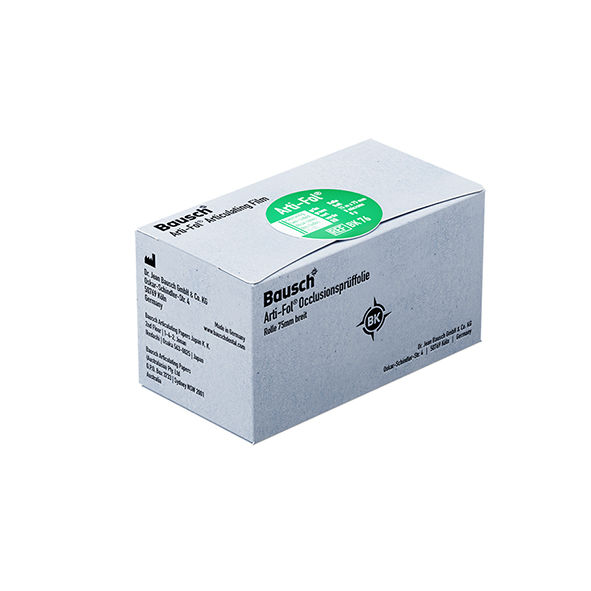Even small premature contacts at micrometer margins can cause functional disturbances in patients (often temporomandibular joint disorders) and can even hinder the act of swallowing saliva. Therefore, visualizing the relationship of occlusal contacts places high demands on the control medium. Often, occlusal contacts have a very small diameter that is difficult to recognize on highly polished ceramic or metal surfaces. The control medium should be extremely thin to ensure a clear and accurate visualization of the actual occlusal contacts. Bausch occlusion foils meet these requirements and are particularly distinguished by their strong marking even on difficult-to-control surfaces. The thin color coating of only 6 microns, consisting of wax and pigment, also contains hydrophilic components to significantly improve color transmission even on wet occlusal surfaces. Arti-Fol® Bausch foils are especially suitable for visualizing static and dynamic occlusion in various colors. In the first step, static occlusion is checked in red, and in the second step, dynamic occlusion is checked in black. The order of the colors can also be changed. For a more accurate representation of dynamic occlusion, multiple colors can also be used. Bausch Arti-Fol® is supplied in four different colors. For the visualization of antagonist contacts, all foils are also supplied with a bilateral color coating.


